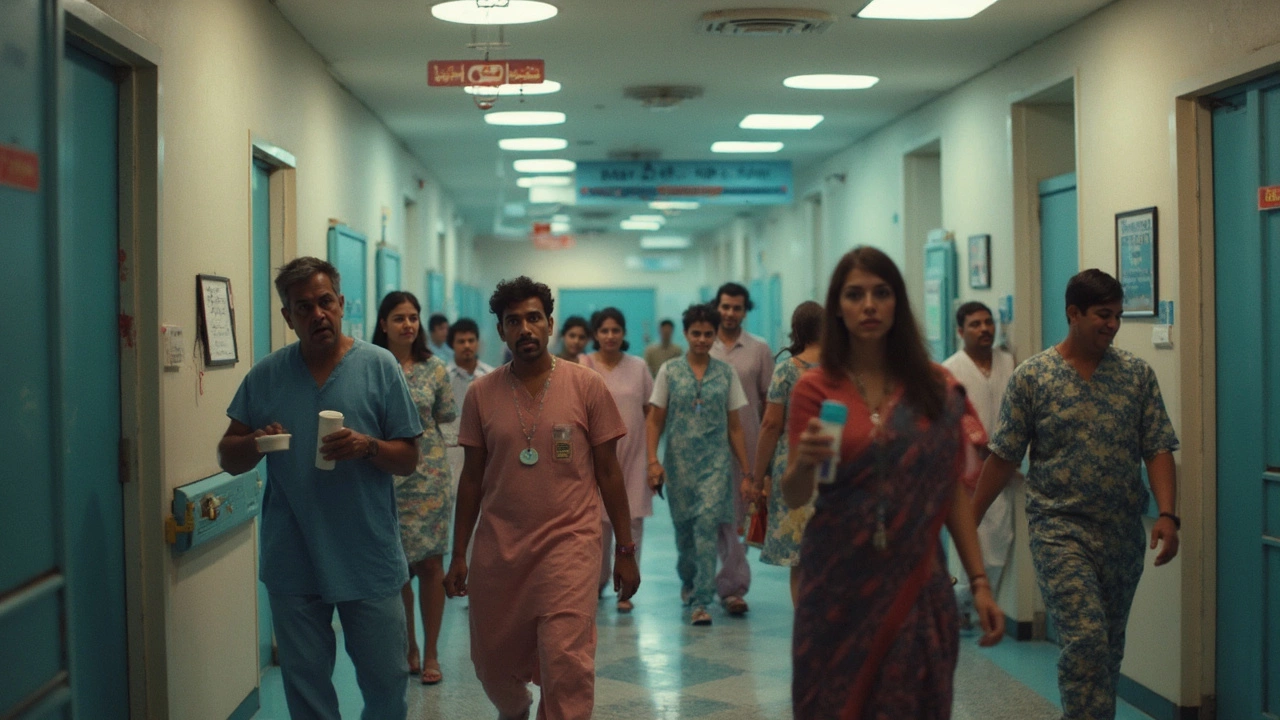Medical Tourism: Your Guide to Treating Health Abroad
When exploring Medical Tourism, the practice of traveling to another country for medical care. Also known as health tourism, it lets patients tap into specialized Knee Replacement Surgery, a procedure that replaces a damaged knee joint with an artificial implant, affordable Weight‑Loss Medication, drugs like semaglutide that help reduce appetite and promote fat loss, authentic Ayurvedic Herbal Therapy, traditional Indian plant‑based treatments used for many chronic conditions, and thorough Comprehensive Blood Testing, a panel of labs that checks everything from cholesterol to thyroid function. Medical tourism encompasses cross‑border healthcare services, requires careful planning of procedures and post‑care, and often influences decisions through the availability of specific treatments.
Why More People Choose to Travel for Care
First off, cost is a big driver. A knee replacement in some countries can cost a fraction of the price at home, and many clinics bundle surgery with a short stay, making the whole package easier to budget. At the same time, patients chase expertise—some surgeons or clinics have a reputation for cutting‑edge techniques that aren’t yet widely available elsewhere. This reputation creates a semantic link: expertise influences destination choice. When you add the appeal of a relaxing environment, the trip feels less like a medical mission and more like a brief vacation with a health boost.
Another key factor is the range of treatments you can’t find at home. For example, Ayurvedic herbal therapy offers plant‑based options for joint pain, skin health, and even anxiety relief. People often pair these natural approaches with conventional care, so they end up with a hybrid plan that feels personalized. That hybrid approach creates another semantic triple: Ayurvedic herbal therapy complements surgical recovery. The same goes for weight‑loss medication—travelers can start a semaglutide program under specialist supervision, then continue the regimen after returning.
But it’s not just about savings or exotic options. Safety and quality matter. Accredited hospitals follow international standards like JCI or NABH, and many provide English‑speaking staff, tele‑medicine follow‑ups, and clear post‑op instructions. Knowing that a facility meets these benchmarks forms a semantic connection: accreditation ensures patient confidence. Before you book, ask for the hospital’s accreditation code, surgeon’s credentials, and read up on patient reviews.
Preparation starts well before you board the plane. A comprehensive blood test is a smart first step—it tells you if you’re cleared for surgery, helps adjust medication dosages, and flags hidden issues like kidney stress from certain herbs. This pre‑travel screening creates a semantic link: blood testing informs safe treatment selection. Once you have those results, you can share them with your destination doctor, who can tailor the procedure and post‑op plan to your exact needs.
Travel logistics also play a role. Visa requirements, travel insurance that covers overseas procedures, and the timing of follow‑up appointments all need to align. Many patients coordinate a short stay for the procedure and a few days of recovery, then head home for extended rehab. This timeline reflects a semantic triple: post‑op care extends beyond the travel window. Choose a destination where you can access reputable physiotherapy or rehab centers if you need ongoing support.
When you consider all these pieces—cost, expertise, treatment variety, safety standards, and logistics—you start to see how medical tourism is a web of interconnected decisions. Each choice influences the next, and the best outcomes come from looking at the whole picture rather than an isolated service.
Below you’ll find a curated list of articles that dive deeper into the most common procedures and therapies people seek abroad, from knee and shoulder surgery to weight‑loss drugs, herbal supplements, and essential health screenings. Use these reads to fine‑tune your plan, compare options, and feel confident about the path you choose.






